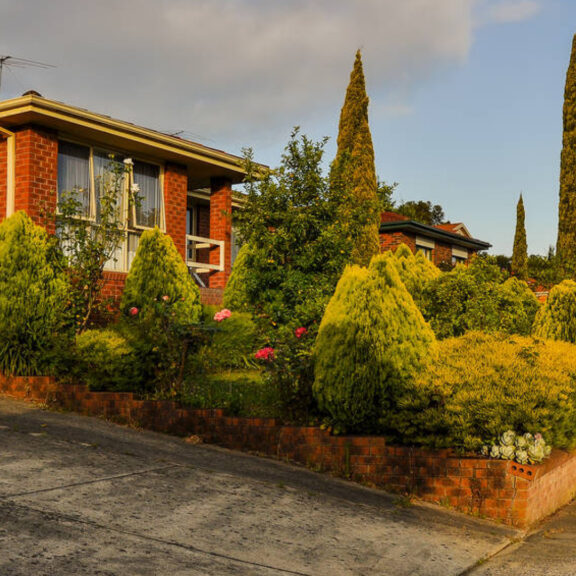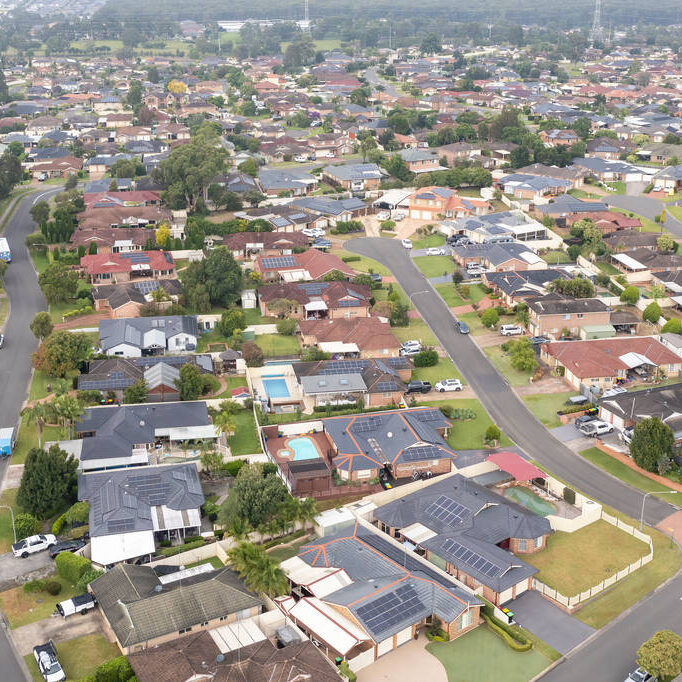You may be chasing more affordable prices, dreaming of a lifestyle change, or spotting investment potential in a different market altogether. No matter the reason, buying property in another state can be pretty tempting. But let’s be clear: buying interstate isn’t quite the same as finding a place down the road. You may have to […]
Maximising Your Property Investment Tax Benefits
Paying taxes can be a bit disheartening since it impacts your profits and diminishes the overall returns from your investment property. Thankfully, the Australian Tax Office (ATO) offers several property investment tax benefits and deductions that can help lighten the tax load on your rental income. It just all lies in maximising these rental property tax deductions. Do not fret because that’s what we’ll exactly tackle today.
Read on to learn how to lessen the financial impact of income tax on your investment or rental property and hold more onto your hard-earned profits.
How Does Rental Property Tax Work in Australia?
Rental property tax in Australia operates on a relatively straightforward principle: you’re required to declare all income you receive from your investment property, but you’re also entitled to claim deductions for expenses related to earning that income. Here’s a breakdown of how it works:
Income Declaration
You must report all rental income you receive in your annual tax return. This includes the rent and any additional payments you might receive from your tenants, such as bond money you retain for property damages or booking fees when holiday renters cancel a booking. Have you received a relief fund or insurance payout after a natural disaster or unexpected event such as burst pipes? You should also report that income.
Expense Deductions
You can claim deductions for expenses incurred in earning rental income. Expenses on maintenance, council rates, and interest on loans can be claimed during the income year you incurred the expense. You can also claim deductions for expenses incurred over several years, including capital works & depreciating assets over $300. Overall, these deductions reduce your taxable income, effectively lowering your tax bill.
Net Rental Income & Tax Rate Application
Your taxable rental income is calculated by subtracting your allowable deductions from your gross rental income. The net rental income is then added to your other sources of income, and tax is calculated based on your total taxable income for the year.
Just a Note
Claiming a tax deduction doesn’t mean you get the full amount back from the Australian Taxation Office (ATO). Instead, it reduces your taxable income. For example, if you spend $4,680 a year on cleaning fees for your rental property and your taxable income is $90,000, you’ll pay tax on $85,320 ($90,000 – $4,680). This reduction in taxable income can lead to significant savings on your tax bill.
What Are Rental Property Expenses You Can Claim?
Are investment property taxes deductible? Yes. As a property investor, you can claim an array of expenses as tax deductions. Here are some of them:
- Rental Expenses: These include everything you spend to earn your rental income. We’re talking about advertising costs, rental agent fees, council rates, utilities, insurance premiums, pest control, cleaning & gardening services, body corporate fees and phone and internet expenses related to property management.
- Interest on Loans: The interest paid on your investment property loan is one of the many property investment tax benefits you should maximise. This includes interest on mortgages and any other loans taken out specifically for purchasing, upgrading or improving the property.
- Repairs and Maintenance: You can claim deductions for repairs and maintenance work related to keeping the rental property in good condition. These cover expenses related to fixing leaks, repainting, or replacing broken fixtures. Just a reminder: distinguish between repairs and improvements when keeping records, as improvements are treated differently for tax purposes.
- Depreciation: It refers to the decline in the property value itself and the fixtures and fittings within it. You’ll need a depreciation schedule prepared by a qualified quantity surveyor to claim depreciating assets.
- Professional Fees: Costs for property management, tax advice, accounting services, and legal expenses related to your investment property are generally tax-deductible. Be sure to keep good records of these fees.

What Are the Tax Benefits When Selling a Property in Australia?
Thinking of selling your rental property? Or are you just in the business of buying and selling a property shortly after improving it? When it comes to selling an investment property, here are several tax considerations and potential benefits you must know:
- Capital Gains Tax (CGT) Discount: If you’ve held the property for more than 12 months, you may be eligible for a 50% discount on the capital gain. You may only need to pay tax on half of the profit you’ve made from the sale.
- Main Residence Exemption: Was the property your main residence for any period before selling it? You might claim a partial CGT exemption. The exemption is calculated based on the proportion of time the property was your primary residence.
- Cost Base Adjustments: You can include certain costs in the property’s cost base, which reduces your capital gain. These might include stamp duty, legal fees, and the cost of improvements.
- CGT Rollover Relief: In some cases, you might defer paying CGT by reinvesting the proceeds from the sale into another property.
- Small Business CGT Concessions: If the property was used in a small business, you might be eligible for additional CGT concessions.
Tips on How to Maximise Property Investment Tax Benefits
- Keep Meticulous Records: Maintain detailed records of all income and expenses related to your investment property. Be organised and keep everything from receipts & invoices to bank statements and loan documents.
- Understand the Difference Between Repairs and Improvements: Repairs are immediately deductible, while improvements are depreciated over time. Knowing the difference can help you claim tax deductions correctly.
- Get a Depreciation Schedule: A professional quantity surveyor can provide a comprehensive depreciation schedule. That document and their expertise on the matter can help you maximise your depreciation claims.
- Consider Prepaying Expenses: In some cases, prepaying expenses like insurance or interest can allow you to bring forward deductions into the current financial year.
- Know When to Sell: Consider the timing carefully if you plan to sell. Holding the property for at least 12 months can make you eligible for the CGT discount.
- Seek Professional Advice: Tax laws can be complicated and change frequently. Speak to a tax professional or financial advisor specialising in property investment to maximise your investment property tax benefits in Australia while complying with all relevant regulations.
- Stay Informed: Keep up-to-date with updates in tax laws and property market trends. This knowledge can help you make informed decisions about your investment strategy.
- Consider Negative Gearing: While it shouldn’t be the sole reason for investing, understanding how negative gearing works can help you manage your tax position effectively. Discuss this with your tax advisor to get the best results.
- Maximise Deductions Before Selling: Ensure you’ve claimed all possible deductions during your ownership period before selling your investment property. That’s one of the understated ways to maximise tax benefits.
- Plan for Capital Gains Tax: If you’re selling at a profit, plan for the CGT implications. Consider strategies to minimise your tax liability, such as timing the sale or using CGT concessions.
Every Investor’s Situation is Unique
Every property investor’s situation is unique, so it’s always wise to seek personalised property investment tax advice from a qualified professional. That way, you can make the most of your investment while staying compliant with Australian tax laws.
Need more property investment advice? Check out our blog. If you need assistance financing your investment properties, don’t hesitate to call our mortgage brokers.
Enquire Now
Find Your Perfect Finance Solution
Let's discuss your finance needs. We’re here to help.
More posts from Deltos Finance

Suburbs with the Highest Rental Yield in Tasmania
The term “rental yield” is music to any property investor’s ears. It’s the key metric that indicates the annual return on your investment, essentially the percentage of the property’s value that comes back to you in rental income. In a market like Tasmania, which has been gaining traction for its overall investment appeal, pinpointing the […]

Launceston: A ‘Second Wind’ Property Market You Should Invest in Now
When talk turns to Tasmania’s property scene, it’s easy for the spotlight to shine brightly on Hobart, with its bustling waterfront and historic charm. But just a little further north, nestled at the head of the picturesque Tamar Valley, lies Launceston—a city that quietly hits its stride and presents a compelling proposition for savvy property […]

How Often Does Property Double in Value?
Every homeowner has likely dreamed of their property doubling in value in the future, turning into a valuable nest egg or funding their next big adventure. But how long does it actually take for a property to double in value? And how often does it happen? While there’s no magic eight-ball to predict the property […]

Stamp Duty Exemption for First-Home Buyers in Tasmania: Has It Paid Off?
Purchasing a property has historically come with major financial difficulties, especially for first-home buyers in Tasmania or any other state for that matter. The stamp duty is one of those most notable monetary challenges for homebuyers. Essentially, it’s a tax levied on property purchases that often adds tens of thousands of dollars to upfront costs. […]

Difference Between Airbnb and Traditional Renting in Hobart
Hobart’s property market has become a hotspot for investors largely because of its strong tourism demand and stable rental market. But that doesn’t mean all property investments in this Tasmania capital are a sure win. One factor to consider is deciding between short-term rentals like Airbnb and traditional long-term renting. Each option has distinct advantages […]

Is Launceston a Good Place to Live?
The short answer is yes, especially if you want a more affordable lifestyle without giving up access to key services, natural beauty, and long-term opportunities. Also, with its blend of heritage charm, steady economic growth, and a property market still within reach for many Australians, Launceston, Tasmania, is gaining momentum as a popular area for […]

Hobart Property Management Fees: A Complete Guide
You’ve already secured an investment loan and finalised your rental property purchase in Hobart. Now, it’s time to take action by listing the property for rent and managing it effectively to start generating rental income. But how much should you expect to spend on property management in Hobart, Tasmania? As Tasmania’s capital continues to attract […]

How Rising Property Prices Affect Your Home Loan and Buying Potential
Here’s the good news: the Australian real estate market has been experiencing significant growth in recent years, with house prices in major cities reaching record highs. It can be a huge win for homeowners and investors, especially those planning to sell their properties soon. However, this can be an issue for potential property buyers, including […]

Build Your Wealth with a Simple Guide to Using Your Home Equity
Building wealth requires adopting the right mindset and being strategic when using available financial instruments. Essentially, it’s about making your money work in your favour. But what if you don’t have enough cash to start creating wealth? There’s an underutilised strategy that we want to share with you, and that is leveraging your home’s equity—the […]


